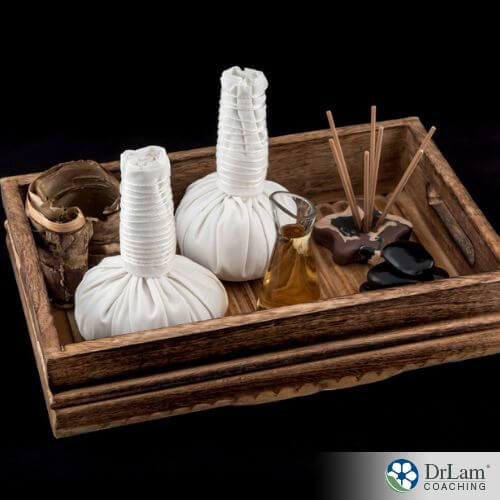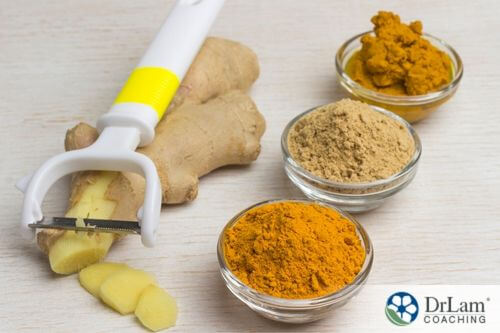 Practitioners of Chinese Medicine have, for centuries, made use of herbal poultices due to the many benefits they may have. According to ancient belief, and something which conventional medicine increasingly agrees with, inflammation and pain may result from a blockage of energy flow in your body’s meridians. The Chinese refer to this energy flow as qi. And an herbal poultice may be just the thing to help your body unblock this energy blockage while addressing pain and inflammation at the same time.
Practitioners of Chinese Medicine have, for centuries, made use of herbal poultices due to the many benefits they may have. According to ancient belief, and something which conventional medicine increasingly agrees with, inflammation and pain may result from a blockage of energy flow in your body’s meridians. The Chinese refer to this energy flow as qi. And an herbal poultice may be just the thing to help your body unblock this energy blockage while addressing pain and inflammation at the same time.
Literature abounds with information about the various beneficial properties of herbs. An herbal poultice is another way to reap the rewards of these benefits.
An herbal poultice refers to the direct application of herbs to your skin. You can use either fresh or dried herbs. For strong herbs, it is best to wrap them in a thin cloth to protect the skin from possible negative interactions.
An herbal poultice can be simple, with only a single herb, or complex, with different herbs or other ingredients. Common additional ingredients include the use of bentonite clay or activated charcoal.
You can either use a warm herbal poultice or a cold herbal poultice. A cold herbal poultice is ideal for addressing sunburn. A warm herbal poultice, on the other hand, may help inflammation while promoting circulation in a particular area. Depending on the herbs used, you can use an herbal poultice to relieve inflammation, aches and pains, chest congestion, boils, or draw poisons or splinters from your skin.
Do note that you should use an herbal poultice as an aid in your healing process. It should not take away from other healthcare therapies used in dealing with your situation.
Also, note that certain herbs as well as other herbal poultice additions may have interactions with underlying health conditions and certain medications. Be sure to talk to your healthcare provider before use.
Depending on the herbs you use and where you use them, an herbal poultice can have numerous health benefits. These include:
Many herbs fight inflammation. Some good ones are listed below.
 Inflammation is your body’s response to stress. This includes stress from both psychological and physiological sources including mental stress, a sprain, a bruise, a broken bone, or an illness. Inflammation happens when your body is hard at work repairing itself or fighting off an invader. It is a good thing. As long as it doesn't go on for too long.
Inflammation is your body’s response to stress. This includes stress from both psychological and physiological sources including mental stress, a sprain, a bruise, a broken bone, or an illness. Inflammation happens when your body is hard at work repairing itself or fighting off an invader. It is a good thing. As long as it doesn't go on for too long.
Stress causes an immediate activation of your body’s NeuroEndoMetabolic (NEM) stress response. Your NEM activates reactions throughout your body to deal with the stress. This includes an increase in your stress hormone, cortisol, in your adrenals, an elevated heart rate, and a decline in the production of other hormones. Your inflammation circuit may also become activated as part of your body’s immune function.
All changes due to your NEM response return to normal once the stressor passes. But constant stress could see a constant Inflammation Circuit response that results in chronic inflammation. And chronic inflammation may lead to various symptoms manifesting, while overtaxed adrenals could result in adrenal fatigue. Furthermore, chronic inflammation may cause your immune system to overreact to deal with the issue. This may give rise to even more health issues including autoimmune conditions.
While an herbal poultice is external and may not help address many of the health issues associated with chronic inflammation, it can help address inflammatory issues on a smaller scale, like bruising, muscle pain, or even arthritis. Addressing any type of inflammation may help support overtaxed adrenals and help in curbing chronic inflammation.
An herbal poultice gives you the benefits of an herb without the high concentrations found in essential oils and tinctures.
You can use either fresh or dried herbs to make your herbal poultice. When using fresh herbs, you can use the leaves as well as the stems. Furthermore, you can add other ingredients like salts, certain clays, or activated charcoal.
After choosing your ingredients, you typically add them to a mortar and grind them up with a pestle.
Add a little water until you have the consistency of a thick paste. Hot water is suitable for an herbal poultice where you want to draw out something. A cold poultice is more effective when dealing with inflammation. For this, it's best to add hot water and allow it to cool down to the desired temperature before using. Hot water tends to extract an herb’s beneficial properties better.
Once made, you place the ingredients of your poultice either directly onto your skin or wrap it in a cloth before doing so. Cheesecloth or thin cotton make good choices. Adding a plastic layer over this can help protect your clothing while helping to ensure the poultice stays in place.
You may need to change your poultice a few times a day.
You can easily mix up some of these herbs to make your herbal poultice. Feel free to try out different ingredients to see what works for you. You can add coconut oil, olive oil, avocado oil, or flaxseed oil instead of water. They all have beneficial anti-inflammatory properties. The following two poultices work well for inflammatory issues.
 You can use this herbal poultice for a wide range of inflammatory health issues, including bruises, abrasions, sore muscles, and arthritis.
You can use this herbal poultice for a wide range of inflammatory health issues, including bruises, abrasions, sore muscles, and arthritis.
Ingredients:
Method:
This poultice may help you deal with the inflammation associated with sprains or bruises.
Ingredients:
Method:
Although considered generally safe, there are some things you need to keep in mind when using a poultice. These include not using it on deep, open wounds or if pregnant. Some herbs are not safe for this type of use during pregnancy.
Don't use any ingredients you are allergic to. Avoid poultices using honey or sugar if you have diabetes because it could inadvertently affect blood sugar levels. Also, if you have an underlying medical condition and use medications, please first consult your healthcare provider. Poultices may interact with certain medications.
Furthermore, please make sure that you thoroughly clean the affected area and all utensils used during preparation beforehand.
Lastly, don't regard an herbal poultice as a medication. You should regard it as something that enhances the healing process. You may still need the services of a healthcare provider to help you deal with your inflammatory condition.
An herbal poultice may have many healing benefits, including helping to address inflammation. The type of poultice depends on what condition you would like to address. You would use different ingredients in a poultice for arthritis than one for eczema, for example.
If inflammation is an issue and you want to try out a poultice, you can try out one of the above recipes or try your own ingredients. Be sure to talk to your healthcare professional if you have any underlying health issues or take medications.
If you would like to know more about making an herbal poultice or its suitability, the team at Dr. Lam Coaching can help. We offer a free** no-obligation phone consultation at +1 (626) 571-1234 where we will privately discuss your concerns and options. You can also send us a question through our Ask The Doctor system by clicking here.
Depending on the type of herbs used, an herbal poultice may help aid in the healing process. Sprains have an element of inflammation, so it may help with swelling and pain as well. Do make sure you use the correct herbs for your condition.
